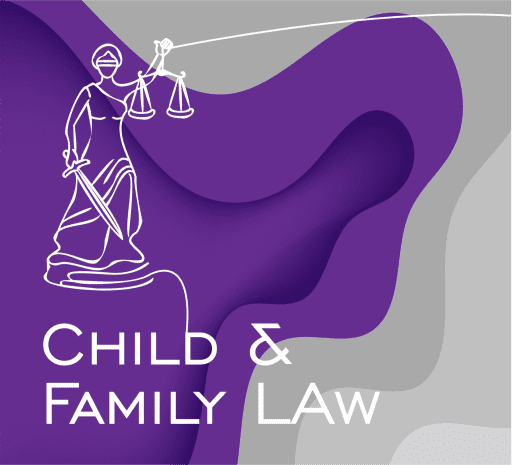Child maintenance (or child support) is a vital legal responsibility for parents who are separated or divorced. It ensures that children are financially supported, even when both parents no longer live together. Payments are typically made from one parent to the other, with the primary caregiver receiving the funds. Regardless of the level of contact between a parent and child, both are legally obligated to contribute to the child’s upbringing.
This guide provides a comprehensive overview of child maintenance to help you navigate the process and highlights why expert legal advice can make all the difference in securing the right arrangements for you and your family.
What Does Child Maintenance Cover?
Child maintenance is designed to cover basic living expenses for the child, including:
- Food and groceries
- Clothing
- Housing and utilities
It’s important to note that school fees, extracurricular activities, and other additional expenses are not included in child maintenance calculations. Parents are encouraged to agree on these costs separately, but disputes often arise. This is where having a solicitor mediate or represent you can be invaluable in ensuring fairness.
Arranging Child Maintenance
There are two primary ways to arrange child maintenance:
1. Family-Based Arrangements
A family-based arrangement is a private agreement between parents regarding child maintenance payments. It offers flexibility but requires cooperation and good communication.
Advantages of Family-Based Arrangements:
- Cost-Free: No legal or administrative fees.
- Control: Parents decide payment amounts, schedules, and methods that work for them.
- Respect and Trust: Demonstrates mutual agreement and cooperation.
Disadvantages of Family-Based Arrangements:
- Not Legally Binding: There’s no enforcement mechanism if one parent fails to meet their obligations.
- Dependent on Cooperation: These arrangements are difficult to maintain if the relationship is strained.
When to Seek Legal Advice:
If you and your ex-partner struggle to reach an agreement or if trust is an issue, consulting a solicitor can ensure your child’s financial needs are protected. We can draft legally binding agreements or explore alternative options if cooperation is not possible.
2. Using the Child Maintenance Service (CMS)
The CMS is a government-run service that helps calculate, collect, and enforce child maintenance payments.
Benefits of CMS:
- Impartiality: CMS serves as a neutral intermediary, removing the need for direct contact between parents.
- Enforcement: CMS can trace absent parents, enforce payments, and pursue arrears.
- Structured Payments: The service provides a clear and enforceable payment schedule.
Why Legal Advice is Still Important:
While the CMS is a valuable resource, it doesn’t address all the complexities of child maintenance—especially in high-net-worth cases or disputes over additional expenses. A solicitor can advocate for your child’s best interests and help ensure fair calculations, particularly when hidden income or assets are involved.
How Are Child Maintenance Payments Calculated?
Child maintenance payments are calculated based on several factors:
- Parental Income:
The paying parent’s gross annual income is assessed, including wages, benefits, and other earnings. Adjustments are made for other dependents or pension contributions. - Number of Children:
Payments increase depending on the number of children requiring support. - Child Maintenance Rates:
CMS applies one of five rates based on weekly income levels. - Shared Care Arrangements:
If the paying parent has the child stay with them overnight on a regular basis, this may reduce the payment amount. - Special Circumstances:
Adjustments can be made for unique financial situations, such as medical expenses or private schooling.
Legal Support in Payment Disputes:
Disputes over income, shared care, or additional expenses are common. A solicitor can ensure all relevant financial details are disclosed and advocate for fair payment amounts that truly reflect the child’s needs.
When Does Child Maintenance End?
Child maintenance payments usually stop when:
- The child turns 16 (or 20 if they remain in full-time education or approved training).
- The child is adopted.
- Both parents equally share custody.
- The child or paying parent moves out of the UK.
Exceptions:
Parents can voluntarily agree to continue financial support beyond these limits, particularly for university or other higher education costs. Legal advice can help you draft enforceable agreements to secure your child’s future.
What Happens If Child Maintenance Isn’t Paid?
Missed payments are a common issue, but there are enforcement mechanisms to recover arrears:
- CMS Enforcement Actions:
- Deducting payments directly from earnings or bank accounts.
- Obtaining a liability order to recover debts through asset seizure or property charges.
- Court Orders:
If CMS enforcement fails, legal action can escalate to:- Seizing valuable assets or property.
- Imposing fines or imprisonment for repeated non-compliance.
How a Solicitor Can Help:
We can help you take swift action to recover missed payments, avoid costly delays, and minimize the financial and emotional strain on your family.
Changes That Require Legal Updates
Circumstances can change, and it’s important to keep your child maintenance arrangements up to date.
You must notify CMS or your solicitor if:
- You move to a new address.
- Your income changes significantly (e.g., a promotion or job loss).
- You have additional children or financial dependents.
Failure to report changes can result in fines or legal penalties.
If you’re navigating the complexities of child maintenance, it’s essential to understand how it ties into your rights as a parent after separation or divorce. Ensuring financial support is just one part of maintaining a healthy relationship with your children. For practical advice on how to stay involved in your child’s life, even after a divorce, check out our comprehensive guide on how to see your kids after a divorce or separation in the UK. This resource provides expert insights into safeguarding your parental rights and fostering a meaningful connection with your children.
Why Legal Support is Essential for High-Net-Worth Cases
For high-net-worth individuals, child maintenance cases often involve hidden assets, business income, or lifestyle discrepancies.
As an experienced family lawyer, I can:
- Investigate undisclosed income or assets.
- Negotiate additional contributions for private schooling, extracurricular activities, or healthcare.
- Ensure the settlement reflects your child’s true needs and maintains their standard of living.
Take Control of Your Child Maintenance Arrangements
While this guide provides a thorough overview, child maintenance is rarely a one-size-fits-all process. Every family’s situation is unique, and expert legal advice ensures your rights—and your child’s needs—are fully protected.
Why Choose Me?
- Tailored Advice: I specialise in navigating complex financial cases, including those involving high-net-worth individuals.
- Proven Results: I’ve helped countless families secure fair and enforceable child maintenance agreements.
- Compassionate Support: Separation is never easy, but I’ll work with you to achieve the best possible outcome with empathy and professionalism.
Contact us today for a consultation and take the first step toward securing your child’s financial future.
- Luton: +44 1582 383 888
- London: +44 2034 393 888
- St Albans: +44 1727 519 888
Alternatively, complete our online contact form, and one of our child law experts will get in touch promptly to discuss your needs and provide tailored advice.




